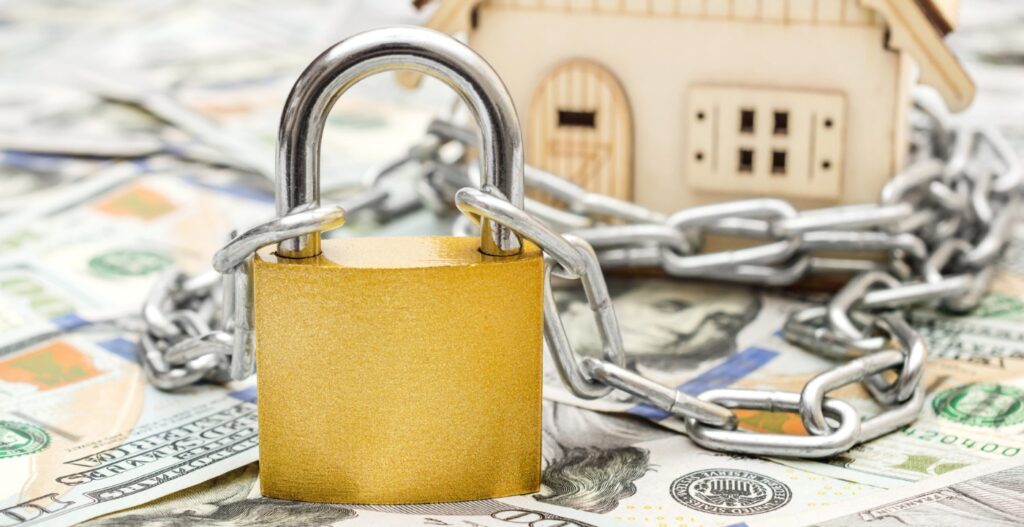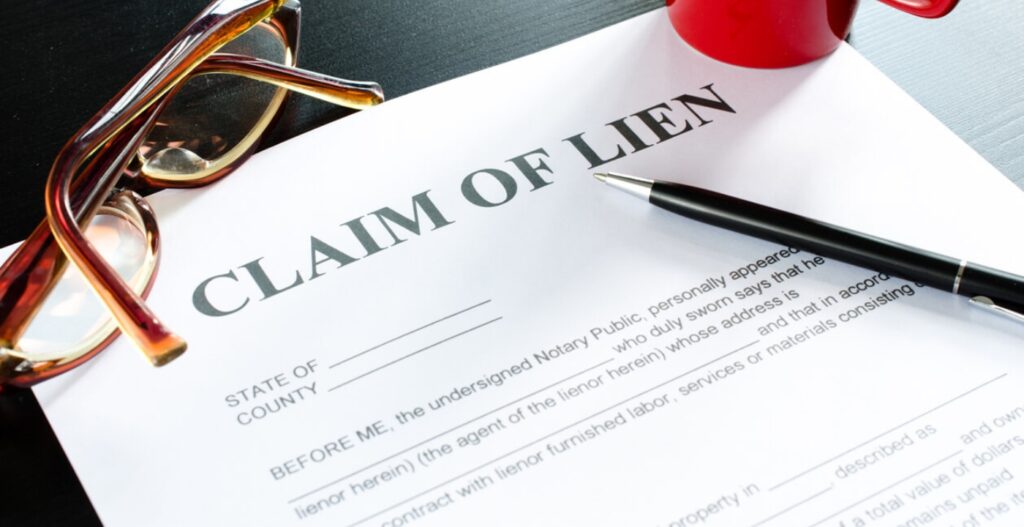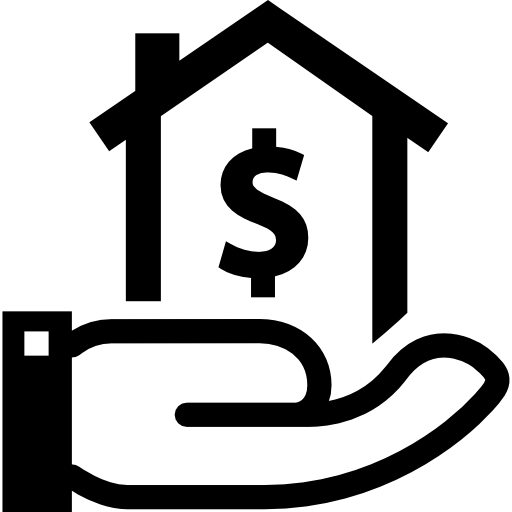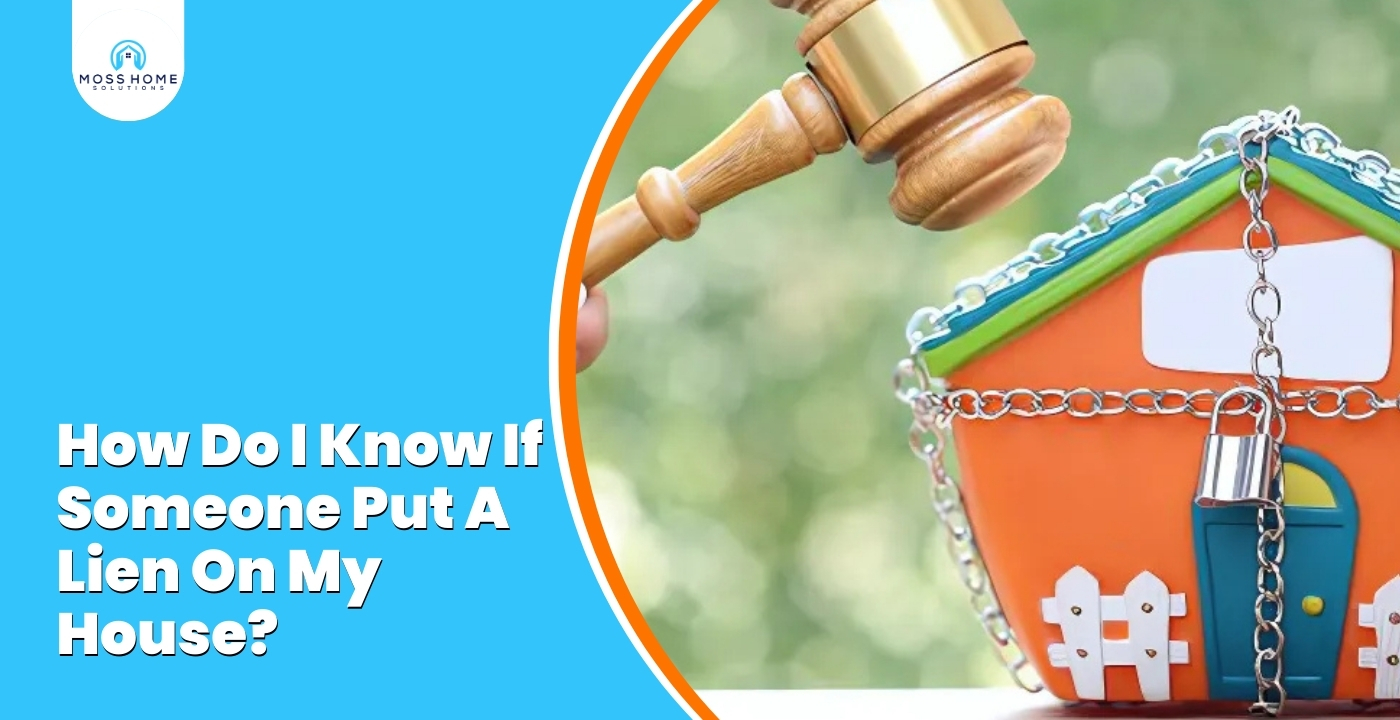With 50 million first-lien mortgages in the US totaling a staggering $11.27 trillion, lien issues can create financial tightropes for homeowners.
Are you on shaky ground?
It’s crucial to know if a lien has been placed on your property before it becomes a serious obstacle.
We will walk you through the signs, types, and consequences of liens because being proactive is key to protecting your future.
Key Notes
- Multiple methods exist to search for liens: public records, online tools, title companies.
- Property liens come in five primary types with different legal implications.
- Liens can be placed without the owner’s knowledge, impacting property sales and refinancing.
- Unresolved liens can lead to serious consequences like potential home foreclosure.
What Is a Lien?

A lien ensures that creditors have a legal claim against your property if debts are unpaid.
This means that you, the property owner (referred to as the lienee), cannot freely sell or refinance your property until the lien is resolved.
The creditor who benefits from this legal claim is known as the lienor or lien holder. Liens can be consensual, resulting from agreements such as a mortgage, or non-consensual, imposed by law, such as tax liens or judgment liens.
Currently, there are over 50 million first-lien, closed-end mortgages in the United States, amounting to an astounding $11.27 trillion in outstanding principal balance.
How to Search for Liens on Your Property
Here’s a simple step-by-step guide to help you check for any potential claims:
Checking Public Records
Start by visiting your local county recorder’s office. You can search through public records by using your property address or your name.
Many counties have online databases, making it easy to search from the comfort of your home.
Using Online Lien Search Tools
There are several websites that aggregate public records and allow you to search for liens on your property without physically visiting an office.
Look for reputable sites that provide access to these records for a nominal fee.
Contacting a Title Company
If you prefer a more comprehensive search, consider hiring a title company. They can conduct a detailed title search and will generally provide a report about any existing liens.
This may be particularly useful if you’re considering buying a new property or need peace of mind regarding your current ownership.
Common Types of Property Liens
There are several kinds of liens to be aware of:
- Mortgage Liens: These are voluntary liens placed by lenders when financing your home—essentially a standard part of taking out a mortgage.
- Property Tax Liens: These are imposed by local governments when property taxes are unpaid. They hold the highest priority among other liens, meaning they must be addressed before any other debts can be settled.
- Judgment Liens: These occur when a court rules against you for an unpaid debt. A judgment lien can affect any real estate owned by the debtor, which can complicate property transactions.
- Mechanic’s Liens: If a contractor has not received payment for their services or materials provided, they may file a mechanic’s lien.
- HOA Liens: Homeowners’ associations can impose liens for unpaid dues or violations of community rules. Such liens can impede your ability to sell your home until the issue is resolved.
Each type of lien brings unique implications and conditions, making it essential to clearly understand what you’re dealing with.
As the housing market continues to evolve, being informed about these various liens can help you make better decisions regarding your property.
Key Features of Property Liens
| Criteria | Mortgage Liens | Tax Liens | Mechanic’s Liens | Judgment Liens | HOA Liens |
|---|---|---|---|---|---|
| Legal Claim on Property |

|

|

|

|

|
| Can Lead to Foreclosure |

|

|

|

|

|
| Placed Without Notification |

|

|

|

|

|
| Priority Over Other Liens |

|

|

|

|

|
| Commonly Encountered by Homeowners |

|

|

|

|

|
Who Can Place a Lien on Your House and Why
Liens can be placed on your property by a variety of parties, and understanding who can do this is crucial:
- Contractors: If you’ve hired a contractor for renovations and they haven’t been paid, they might file a mechanic’s lien against your property.
- Tax Authorities: Unpaid property taxes can lead to tax liens. State or local governments have the right to place these when taxes are delinquent.
- Creditors: If someone has successfully sued you for a debt, a judgment lien can be placed on your property as a way for creditors to secure their claims.
Knowing who can file a lien empowers you to manage your relationships and obligations better, protecting your property and financial interests.
Can Liens Be Placed Without Your Knowledge?
Yes, it is possible for someone to put a lien on your house without notifying you.
Involuntary liens, such as tax liens or judgment liens, can sometimes be filed without prior notice to the property owner.
This can be particularly concerning, as property owners may be unaware of any claims against their property until it results in a serious financial situation or impacts their ability to sell or refinance.
Signs You Might Have a Lien on Your Property

You might be wondering if there are signs to look for when it comes to liens.
Here are a few indicators that could suggest a lien may exist on your property:
Unexpected Communication from Creditors
If you receive unusual calls or letters from creditors, it could indicate that they have placed a lien on your house. This is a clue that can’t be ignored.
Staying alert to these communications is crucial, as they can reveal pending actions related to your debts.
In addition to monitoring creditor communications, regularly checking your credit reports can provide valuable insight.
Many credit reports will list any outstanding debts, including liens, ensuring you are fully aware of your financial obligations.
Issues While Refinancing
If you encounter problems when trying to refinance your mortgage, it may signal a lien.
Lenders typically check for liens before approving new loans, especially in this era where a growing percentage of home purchases are being conducted through independent mortgage companies.
In fact, the share of first-lien home-purchase loans originated by these independent lenders increased significantly from 60.2% in 2022 to 68.8% in 2023.
Keep an eye on these hints, as they might help you catch a lien before it becomes a bigger issue.
Consequences of Liens on Your Property
Impact on Property Sales
A lien can complicate or even prevent the sale of your home. If you attempt to sell while a lien is active, you will need to resolve the lien before the sale can proceed.
This requirement can lead to delays and may deter potential buyers who are concerned about the legal complexities.
Difficulty in Refinancing
If you’re considering refinancing your mortgage, an existing lien can create significant hurdles. Lenders perform thorough checks for any liens before approving refinancing applications.
If a lien is present, you may not qualify for better mortgage terms or even be denied refinancing altogether.
Increased Financial Strain
The accumulation of debts tied to liens can exacerbate your financial situation.
Payments and interest on the debt may pile up if left unaddressed, leading to heightened stress and potential insolvency if your financial obligations exceed your ability to pay.
Potential Foreclosure
Perhaps the most severe consequence of unresolved liens, especially mortgage liens, is foreclosure.
Failure to pay debts secured by liens can prompt creditors to initiate foreclosure proceedings, leading to the loss of your home. This is a distressing scenario that many homeowners seek to avoid.
Negative Impact on Credit
Having a lien on your property can damage your credit score. A lower credit score makes future borrowing more challenging and can lead to higher interest rates when you do qualify.
This credit damage can have long-lasting effects on your financial opportunities.
How To Resolve a Lien
If you discover a lien on your property, you need a clear plan to resolve it:
1. Verify the Lien
First, ensure that the lien is valid. Check your public records to confirm its existence and understand its details.
2. Contact the Lien Holder
Once you’ve verified the lien, reach out to the creditor or entity that placed the lien.
Discuss your options and determine the necessary steps to resolve the situation.
3. Negotiate a Payment Plan
If the lien is related to unpaid debt, negotiating a payment plan with the creditor might be possible. Open communication can often lead to agreeable terms for both parties.
4. Consider Legal Assistance
If the lien is complicated or involves substantial amounts, consulting with a legal professional may be in your best interest. They can help navigate the legal processes involved in addressing the lien.
5. Clear the Lien
Once you have reached an agreement on how to settle the lien, follow through with the necessary payments or obligations.
After the lien is resolved, request that the lien holder take the appropriate actions to remove the lien from public records.
Frequently Asked Questions
How do I check for liens on my property for free?
You can check for liens for free by visiting your local county recorder’s office or accessing their online public records database. Many counties provide this service at no charge.
How do I find out if I have a lien against me?
You can find out if you have a lien against you through public records searches at your county recorder’s office or by using reliable online search tools. Additionally, reviewing your credit report may also reveal any liens associated with your name.
Can a lien on my house lead to foreclosure?
Yes, a lien on your house can lead to foreclosure, particularly if it is a mortgage lien and payments are not made. If other types of liens, such as tax liens, remain unresolved, local authorities can initiate foreclosure proceedings to recover what is owed.
Conclusion
Navigating liens can feel like walking on a tightrope—one misstep and you could face foreclosure or financial strain.
Understanding the different types of liens and their consequences is crucial to protecting your property.
If you’re worried about unexpected lien calls or complications when refinancing, it might be time for a change. Selling your home for cash can help you sidestep those lien pitfalls and keep your financial journey on track.
We can close swiftly, putting cash in your hands in just days. Don’t let lien worries tip you over—contact us today for your free, no-obligation cash offer and regain control.





